Calls for accountability mount after UN China report
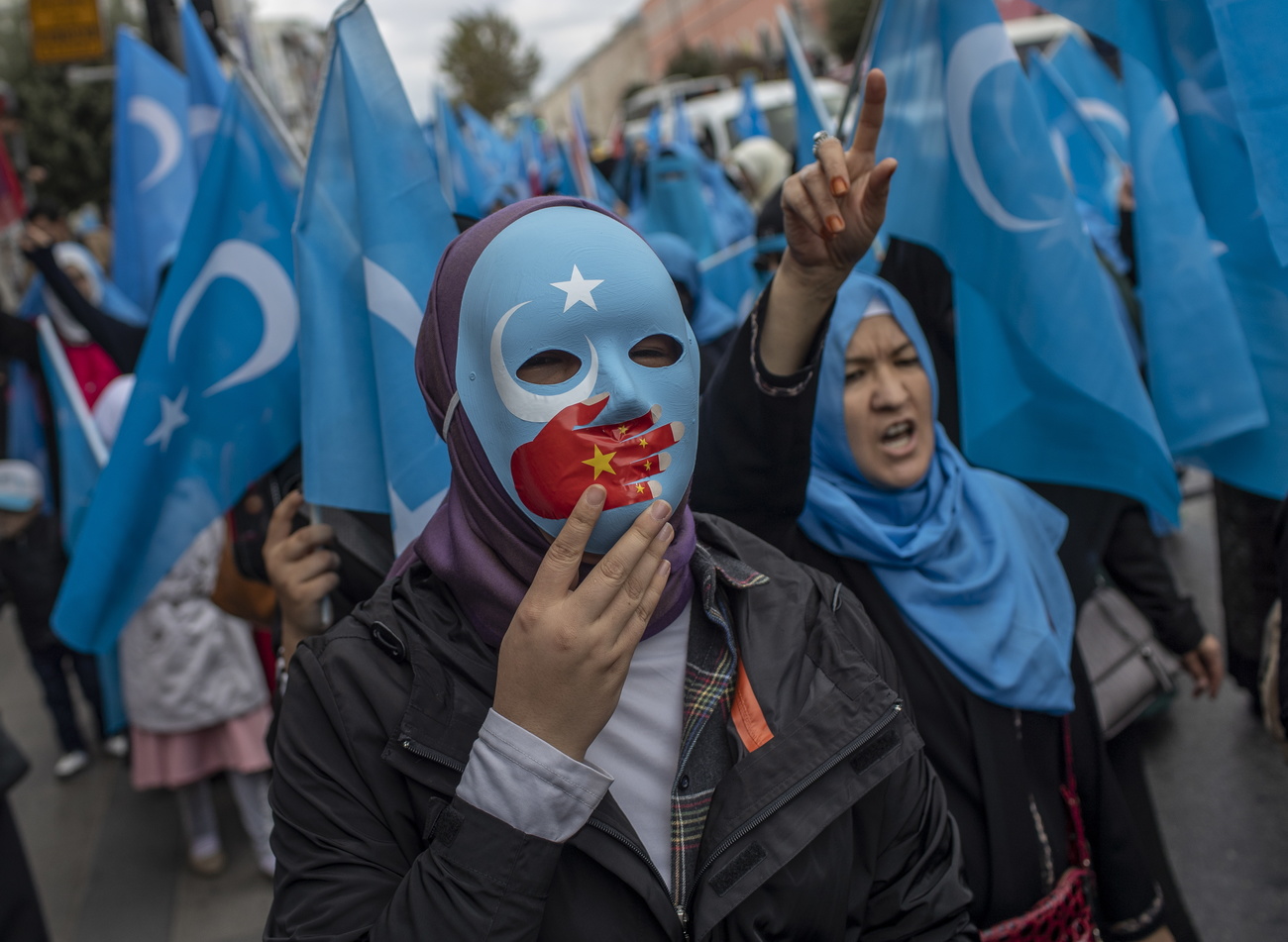
Voices in Geneva and elsewhere are demanding follow up after the release of a long-awaited report on human rights abuses in Xinjiang.
On Wednesday night, the UN’s outgoing human rights chief Michelle Bachelet finally published a long-overdue report on abuses in China’s Xinjiang province, which points to possible crimes against humanity.
Now there are calls for accountability, which will likely stir debate at the upcoming Human Rights Council session.
Switzerland said it welcomes the report. “Switzerland expects China to fully implement the OHCHR’s [Office of the High Commissioner for Human Rights] recommendations, in particular to end all coercive and discriminatory measures against minorities in Xinjiang and to release all arbitrarily detained individuals,” foreign ministry spokesperson Valentin Clivaz told SWI swissinfo.ch. Bern also supports calls for independent investigators to have unfettered access to China.
Asked if Switzerland will support bringing the China report to the Human Rights Council session starting September 12, he said that “Switzerland will indeed raise the issue in an adequate manner and format at the next session of the Human Rights Council in Geneva”.
US ambassador to the UN in New York Linda Thomas-Greenfield said the United States and its allies would continue to push for an end to the Chinese government’s “genocide and crimes against humanity” against Uyghurs and other religious and ethnic minority groups in Xinjiang. “It is critical that the full Human Rights Council membership have an opportunity to formally discuss the findings of this report as soon as possible and that the perpetrators of these atrocities are held accountable,” she said on Thursday.
“Groundbreaking” report
NGOs kept up the pressure on Bachelet to release the report, which has been in the making for some three years. In September 2021 she announced that her office was finalising its assessment of the rights situation in Xinjiang ahead of publication, but still it didn’t come through. Rights groups also slammed her for being too soft on Beijing during her visit to China in May.
But they have welcomed the report, particularly its finding that widespread arbitrary detention of Uyghurs and other mainly Muslim minorities in Xinjiang may constitute crimes against humanity. This confirms other reports already published by credible sources including UN rapporteurs since 2017.
“The inexcusable delay in releasing this report casts a stain on the OHCHR’s record, but this should not deflect from its significance,” said Amnesty International Secretary General Agnès CallamardExternal link, while Human Rights WatchExternal link called the report “groundbreaking”. “Victims and their families whom the Chinese government has long vilified have at long last seen their persecution recognised and can now look to the UN and its member states for action to hold those responsible accountable,” said its Deputy Global Advocacy Director John FisherExternal link in Geneva.
Uyghur Human Rights ProjectExternal link Executive Director Omer Kanat called the UN report a “game-changer” for the international response to the Uyghur crisis. “Despite the Chinese government’s strenuous denials, the UN has now officially recognized that horrific crimes are occurring,” he said.
China’s fury
Beijing hit back against the report, whose release it has lobbied strenuously to prevent. It shared a document of over 100 pages from the Xinjiang provincial government defending its policies in the region. Foreign ministry spokesman Wang Wenbin told a briefing on Thursday that the report was “planned and manufactured first-hand by the US and some Western forces, it is wholly illegal and invalid”.
Wang said the report was a “hodgepodge of misinformation”, and “a political tool which serves as part of the West’s strategy of using Xinjiang to control China”.
The UN report describes a “pattern of large-scale arbitrary detention” in Xinjiang, in which individuals suspected of terrorism are held in high-security facilities without due process and for indefinite lengths of time. China says the camps are re-education and training facilities and denies any abuse, saying it is fighting terrorism and religious extremism.
The report also found “credible” allegations of torture and sexual assault, including rape, at detention centres in Xinjiang. It points to indications of forced labour, sterilisations and abortions, and suppression of religious freedom. But it does not mention possible genocide, which is what some NGOs and Western parliaments have labelled China’s treatment of the Uyghurs.
Calls for accountability
There is now a push for the UN to follow up on this high-level report accusing one of its permanent Security Council members of international crimes. So what can the UN do?
Bachelet herself has said that further investigations are needed, and that her China visit was “not an investigation”.
“There must be accountability for the Chinese government’s crimes against humanity, including through the identification and eventual prosecution of those individuals suspected of responsibility,” said Amnesty International Secretary General Callamard.
The Geneva-based International Service for Human Rights (ISHR) called on the Human Rights Council to hold a formal discussion on China’s human rights crisis, not only Xinjiang but also Tibet, Hong Kong, and persecution of human rights defenders. “Council members should also initiate and support efforts to establish an independent international mechanism to monitor and report on the human rights situation in China,” it said.
As Human Rights Watch points out, similar recent Human Rights Council mechanisms have included commissions of inquiry, fact-finding missions, and independent international monitoring missions. For Syria and Myanmar, it has set up evidence gathering bodies to prepare and preserve files for possible future trials.
While Western countries are likely to push for some kind of follow-up at the upcoming Human Rights Council session, there will be strong pushback from China. Beijing also has allies and influence in the Council, so it is by no means certain which way a vote would go. Reuters reported last month that China had asked High Commissioner Bachelet to bury the report, according to a Chinese letter that was confirmed by diplomats. Bachelet confirmed having received the letter, which she said was signed by about 40 other states.
Spokesperson Ravina Shamdasani told the press in Geneva on Friday that the OCHCR stood ready to work with China to address issues in the report, including releasing the detained, clarifying the whereabouts of the disappeared, and a full of review of the Chinese legal framework concerning its anti-terrorism laws.

In compliance with the JTI standards
More: SWI swissinfo.ch certified by the Journalism Trust Initiative









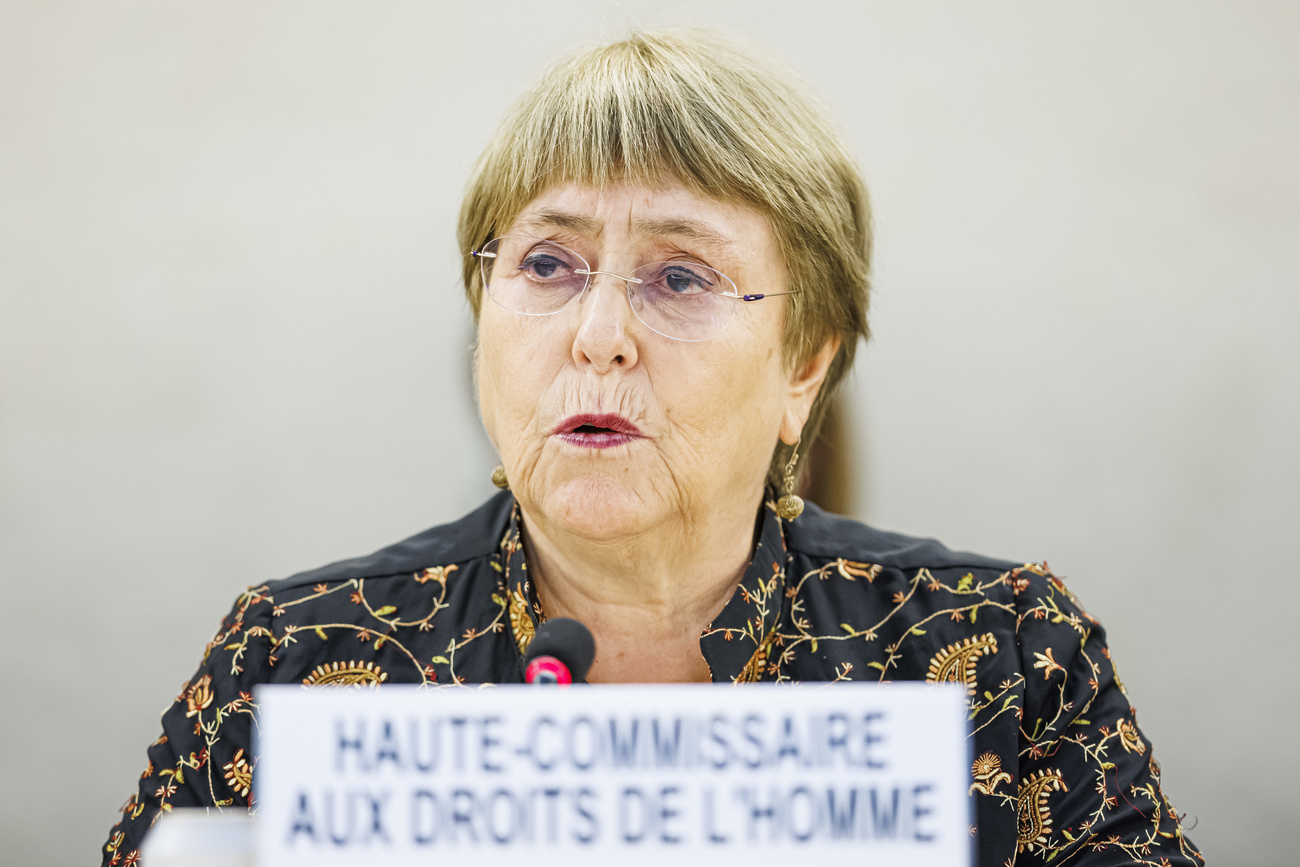
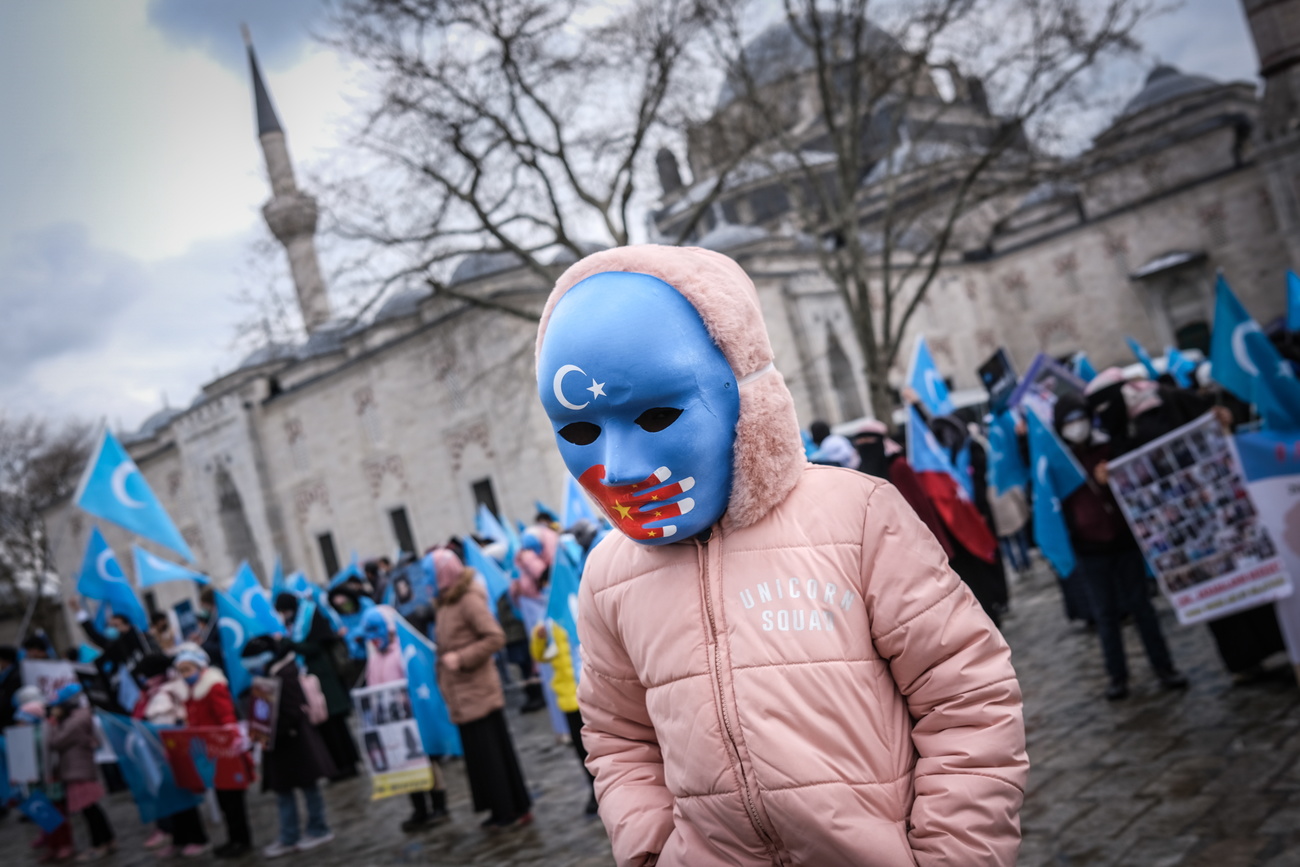
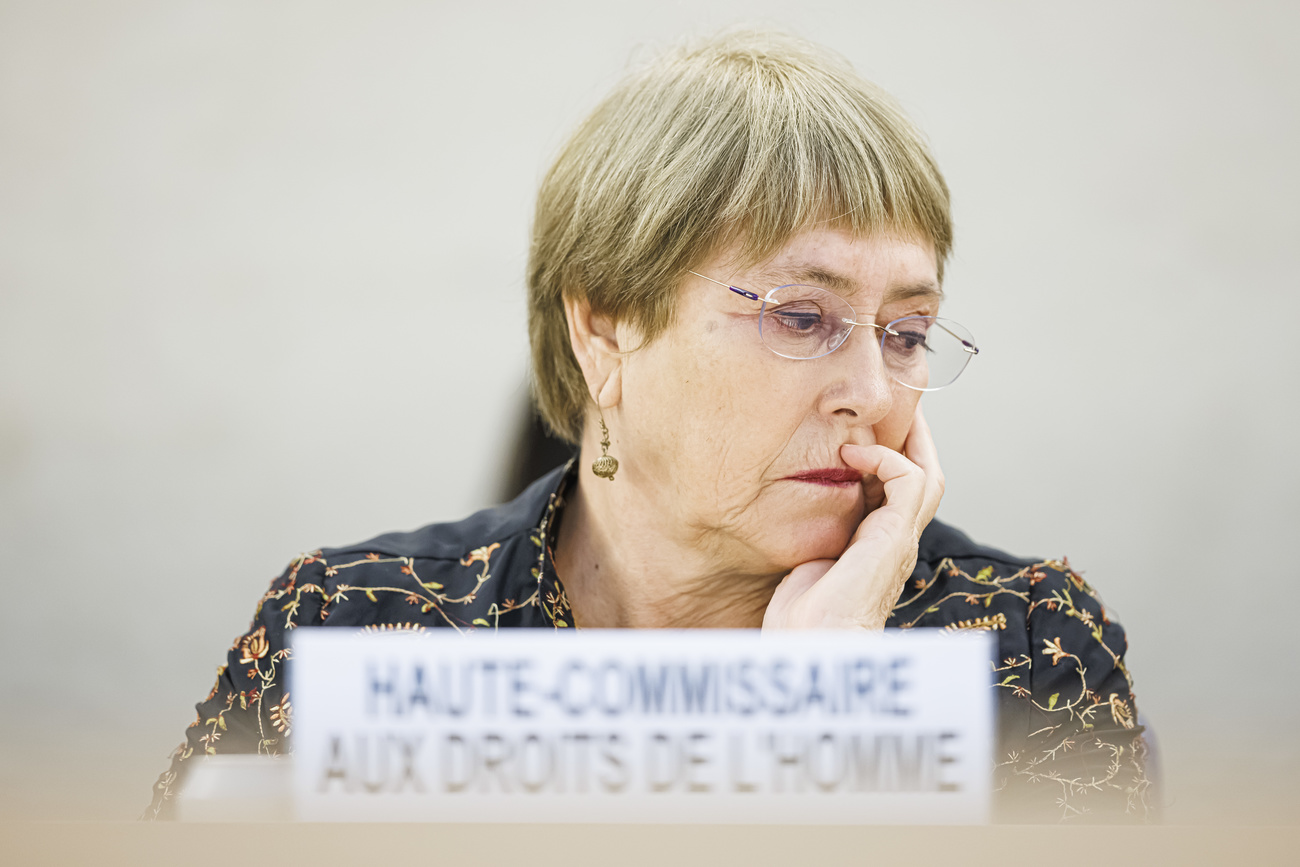
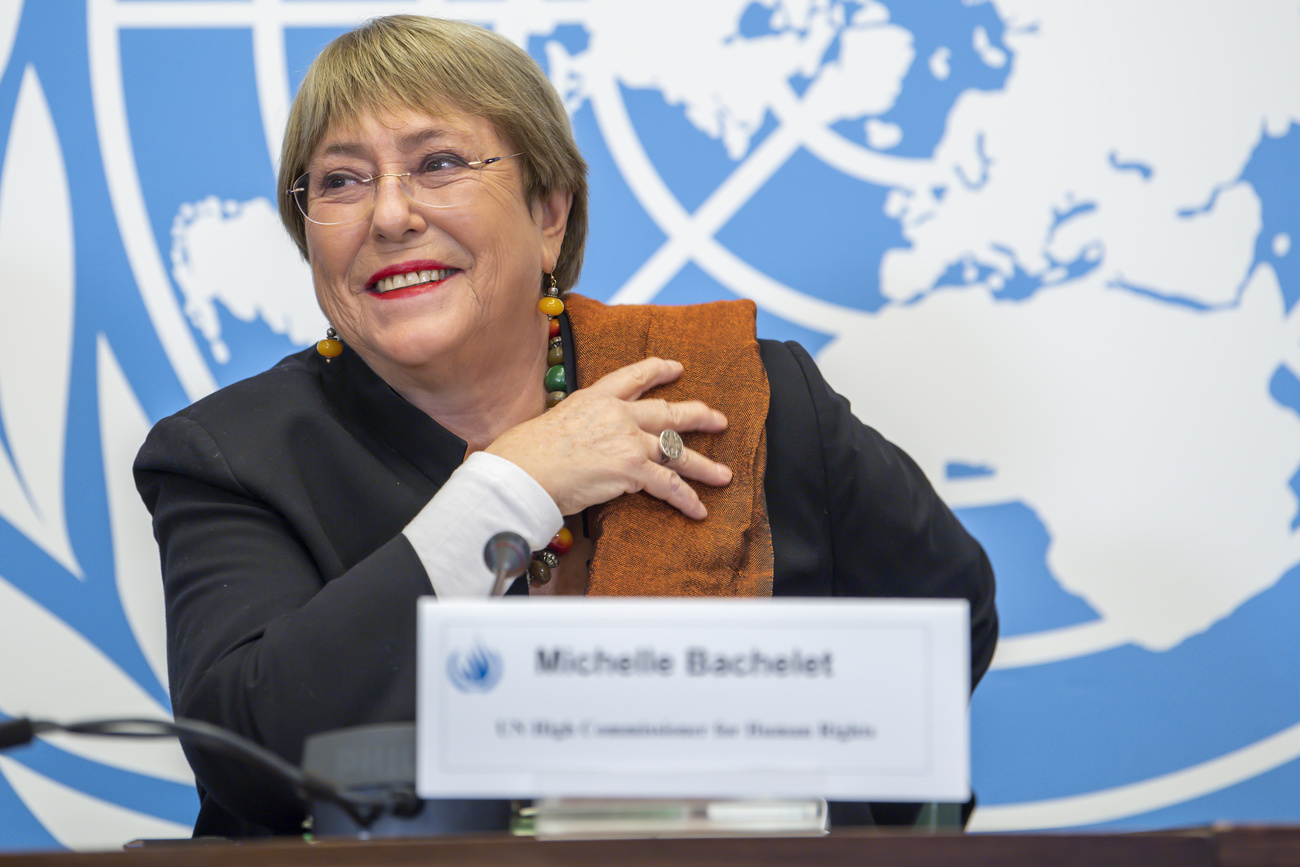
You can find an overview of ongoing debates with our journalists here . Please join us!
If you want to start a conversation about a topic raised in this article or want to report factual errors, email us at english@swissinfo.ch.